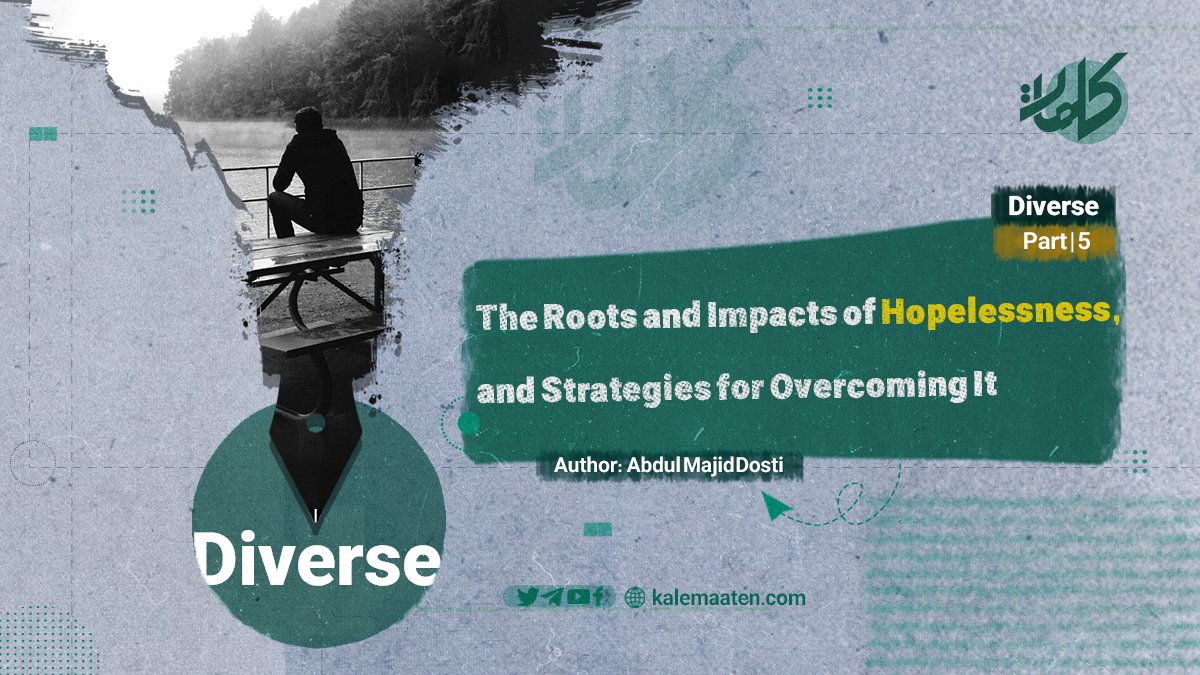
Author: Abdul Majid Dosti
The Roots and Impacts of Hopelessness and Strategies for Overcoming It (Part Five)
One of the significant factors contributing to the overwhelming spread of Hopelessness in individuals, as well as negatively impacting their personal and professional lives, is unemployment. This situation leads to an invasion of negative and hopeless thoughts. Instead of engaging in physical activity or focusing on a tangible job, a person may become mentally preoccupied, spending 24 hours consumed by fantasies. They might envision themselves accomplishing tasks in their imagination but fail to take even a single step or action in reality. This section explores the impact of unemployment in fostering despair:
4. Unemployment and the Invasion of Negative and Hopeless Thoughts
With humanity’s unique creation, upright stature, and graceful physique, humans are crowned as the noblest of all creatures. Allah (s.w.t) has appointed humans as stewards and leaders on Earth, empowering them to use tools, discoveries, and inventions to bring vast and profound prosperity to the globe, achieving remarkable advancement and progress.
In the Holy Quran, numerous verses encourage humans to strive and exert effort in the pursuit of virtues, achievements, rewards, and happiness. The repeated mentions of the term “Fas’aw” (Hurry and strive) underscore and emphasize this very purpose and goal.
From this inherent nature and Quranic encouragement, it is evident that human beings naturally detest idleness, stagnation, and inactivity. If left unemployed, their bodies can become ill, and their minds may succumb to false, negative, and scattered thoughts.
For this reason, people—especially men—must avoid leaving empty spaces in their schedules that could lead to aimless wandering or leave them wondering what to do next. Instead, they should always have something to occupy themselves with—even if it means helping family members with household chores and cleanliness. If nothing else, a walk through a green field, a stroll in the park, or a moment by a riverbank can serve as a shield against temptation and prevent the devil from finding an opening to infiltrate their bodies and souls.
Conversely, if a person succumbs to a lack of planning, remains unemployed, and becomes consumed by negative thoughts and imaginations, their inner self will eventually be dominated by illusions, and their mind will feel overwhelmed. Such a person is bound to fall into depression, which, like a fresh wound, only worsens daily, remaining raw and painful.
At this point, despair ruthlessly and excessively takes over, blaming the individual for their defeat and failure in the battle against unemployment. Through this vulnerability, despair penetrates deep into their soul, gradually eating away at their physical and emotional well-being like termites, pulling them deeper into a mirage of hopelessness.
Continues…


